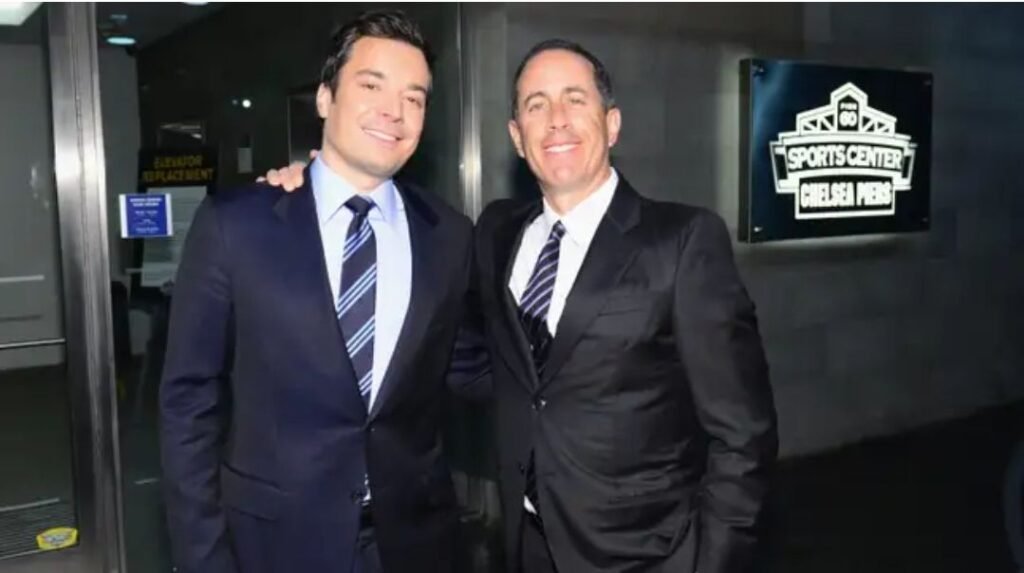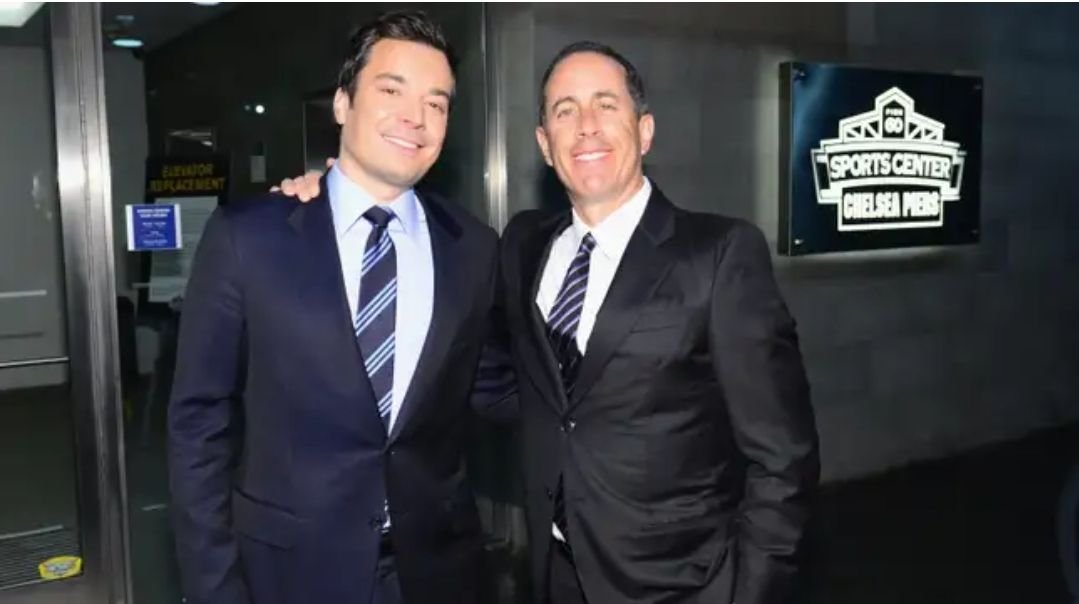
In the ever-evolving world of television show hosts, accusations of fostering a toxic workplace dynamic have become all too common. These allegations have given rise to certain conventions within the genre, and two essential tropes have emerged as a result.The first trope is the obvious non-apology, which has been popularized by the likes of Ellen DeGeneres, James Corden, and most recently, Jimmy Fallon.
Jimmy Fallon net worth 2023!! Know about Biography, Age, Net worth and more
Just last week, Fallon found himself at the center of a Rolling Stone report in which 16 current and former staffers alleged that The Tonight Show was a horrible place to work. In response, Fallon offered the customary non-apology, leaving many questioning the sincerity of his words.
Now, a second trope is being invoked by none other than Jerry Seinfeld. This trope has been aptly named the “actually, that’s not the truth, Ellen,” after Dakota Johnson’s memorable response to Ellen DeGeneres’ suggestion that she wasn’t invited to Johnson’s birthday party. In a surprising twist, Seinfeld is taking a moment to defend the host in question, and the proverbial Ellen of it all is Rolling Stone.
Seinfeld’s defense of Ellen comes as a surprise to many, considering the recent backlash she has faced. However, Seinfeld seems determined to challenge the truthfulness of the Rolling Stone report and support his fellow host. Perhaps he believes that the accusations are unfounded or that they fail to capture the full picture of working on a television show.
This latest development adds another layer to the ongoing conversation surrounding toxic workplace environments in the entertainment industry. It raises questions about the credibility of the accusers, the motivations behind such allegations, and the responsibility of hosts to address and rectify any legitimate concerns.

